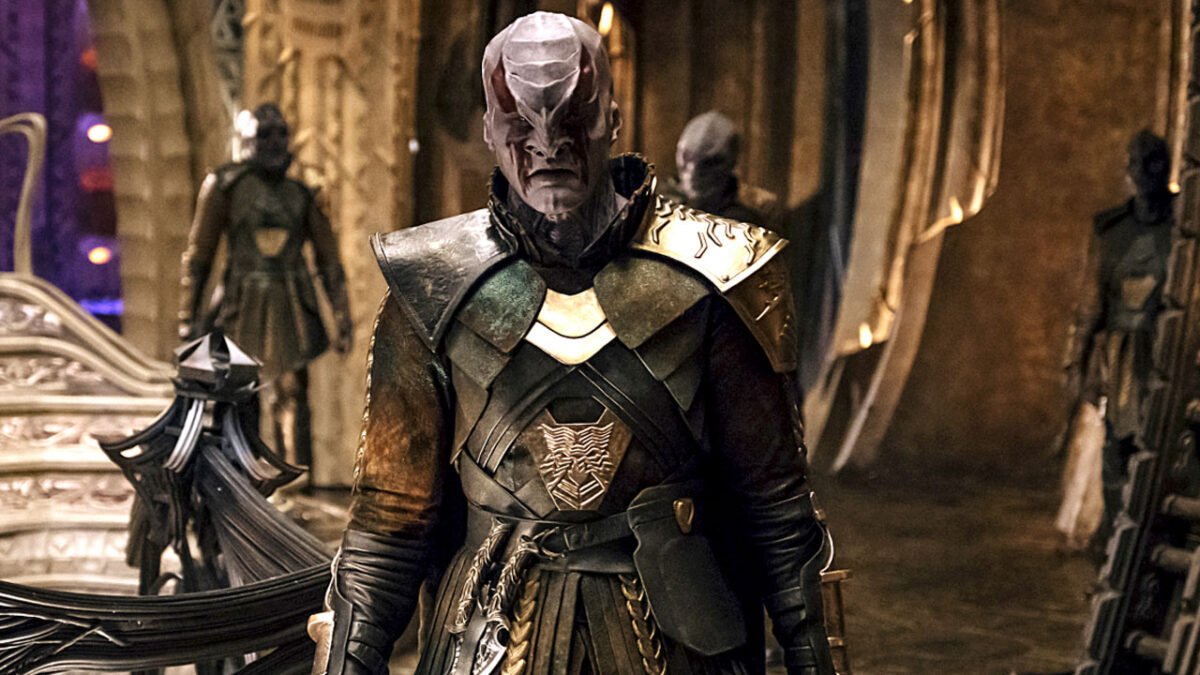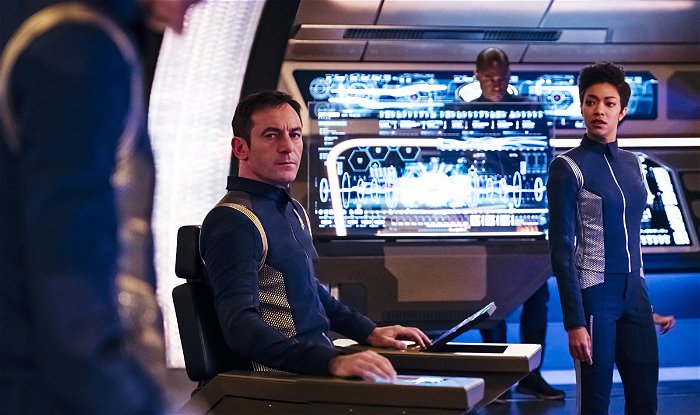In 1991, Dorothy Jones Heydt formulated what she called the “Eight Deadly Words” that strike a death knell to any story: “I don’t care what happens to these people.” While the “eight deadly words” do not apply to Star Trek Discovery, there is a seven word phrase that does: “I don’t care who wins this war.”
The more episodes of Star Trek Discovery that I watch, the more I become convinced that the writers do not understand how a war works. With the exception of a single mining outpost in “The Butcher’s Knife Cares Not for the Lamb’s Cry,” the entire war is presented as starships cruising around looking for fights, after which, for all intents and purposes, they go home or cruise around looking for more fights.
One can already imagine Futurama’s Morbo shouting, “WARS DO NOT WORK THAT WAY!”
As Clausewitz famously wrote, war is the continuation of policy by other means. When any political entity fights a war, they are working towards set victory conditions. In an interstellar war, the starships may be designed to destroy other starships, but they are used as tools to achieve strategic goals, such as taking colonies and outposts by the border to establish a beachhead, interdicting interstellar shipping, protecting territory, or protecting the flanks of a general advance. When skirmishing or pitched battles occur, they happen in the context of carrying out a mission towards these goals.
Star Trek Discovery does not seem to understand this. Over the course of the first half of the season we are informed at various times that the Federation is winning or losing the war—but what does this actually mean? Star Trek Discovery has not told us.
And this is a problem. For an audience to care about what happens in a story, there have to be stakes worth caring about. And so far, there aren’t any in Star Trek Discovery.
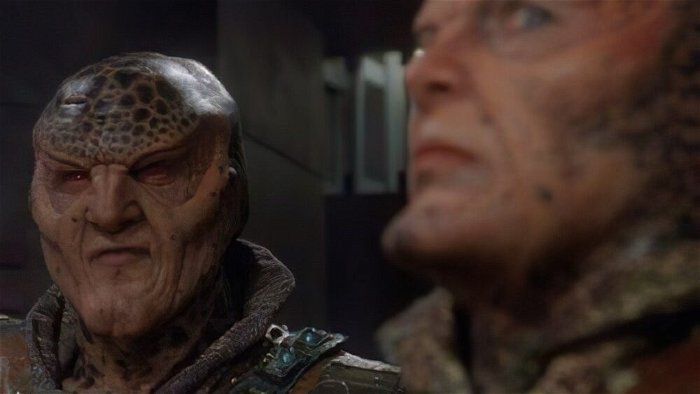
Other science fiction shows have used the events of a war to clarify the stakes and raise tension. In Babylon 5, when the Narns are losing the Narn-Centauri War, it is mentioned on screen that the Centauri is occupying their colonies, with the population being oppressed. When the Shadow War is in full swing, a Shadow planet-killer is used to annihilate entire planets, killing hundreds of millions of people. In the Earth civil war, Mars is occupied and Proxima put under siege, with civilians attempting to leave the conflict zone being shot down.
Battlestar Galactica presented even higher stakes. The show begins with all but approximately 50,000 members of the human race annihilated in a single surprise attack and the Twelve Colonies captured by the Cylons. Later in the show, the New Caprica colony where the survivors have settled comes under a brutal Cylon occupation. The standalone prequel Blood and Chrome begins with a visual of a Cylon Basestar over a human city, Cylon ground forces marching through its streets, and of a human city in ruins. There can be no question that any war against the Cylons is a war for basic survival fought on human soil.
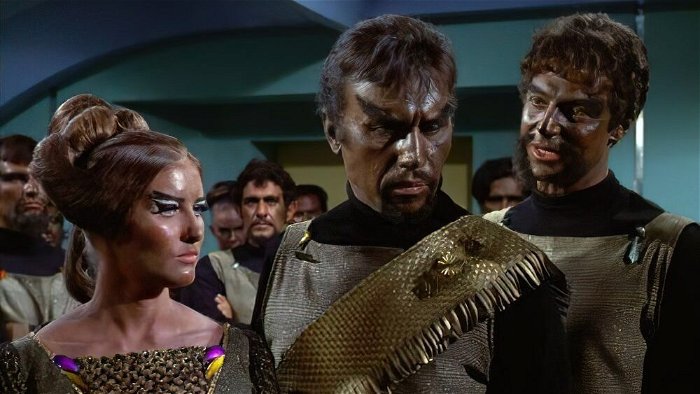
The original Star Trek series also took great pains to ensure that the viewer understood the stakes. “Balance of Terror,” the episode that introduced the Romulans, begins with the destruction of several Neutral Zone outposts. Later dialogue informs us that if the Romulan ship returns home from its raid, it will be the beginning of a merciless war of expansion against the Federation. In “Errand of Mercy,” the episode that established the Klingons as a major antagonist, the planet Organia comes under Klingon occupation. The Klingons impose a brutal repression in which they execute hundreds of civilians to maintain control. A twist in the episode later undoes all of this, but there is never any doubt of what it means to lose your planet to the Klingon Empire.
In all of these examples, there is good reason to care about whether the war is won. There are devastating consequences when the tide turns against one side or the other. This in turn gives the audience something to care about. And to this end, Discovery gives us nothing—there are no news reports of colonies falling under Klingon occupation and oppression, or of a Klingon advance that must be halted before a major world is captured or destroyed. We are provided with no evidence that a Klingon victory would mean anything different to the galaxy than a Federation victory. Because we have been shown no stakes worth caring about, we have been given no reason to care about who wins. This is turn disengages us from the events of the series.
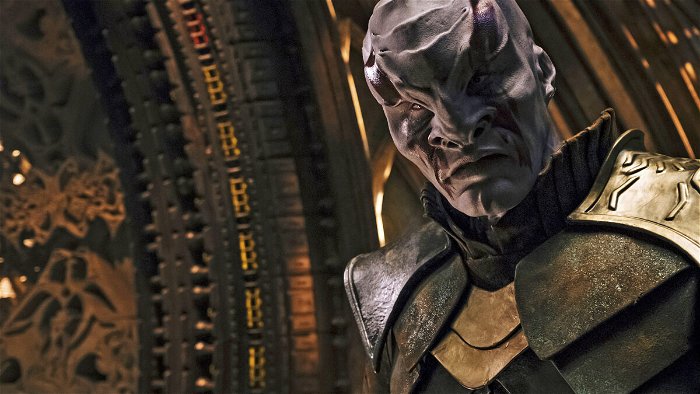
With luck, through the fall season finale and the second half of the season, Star Trek Discovery will give us something—some news of a colony being occupied or destroyed, or some stake beyond “spaceships are blown up.” Until Discovery can give us that and make us care who wins the war it is about, it cannot meet its full storytelling potential.
